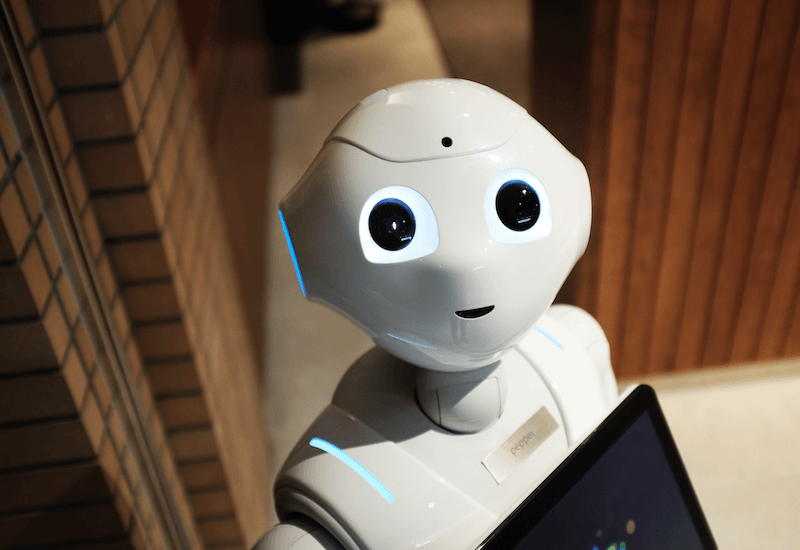In stark contrast to the outdated stereotype of bureaucratic administration, today’s HR teams are creative, innovative, and technologically savvy. They’re working in cross-functional teams, rethinking leadership and management models, and demanding vendor solutions that optimize productivity and performance. HR leaders have become their own disruptors, reimagining both the work we do and how we do it.
As a result, human capital management (HCM) platforms have made remarkable advances in a short period of time. Looking forward, there are four major technologies I expect to completely transform the industry, cementing HR’s role as a strategic partner and redefining the future of work.
Artificial Intelligence
Artificial intelligence (AI) is a ubiquitous term, but the overarching technology powers many emerging solutions. AI systems consume massive amounts of data, apply algorithms to find patterns, and use these findings to draw correlations, make predictions, or assist with decision making. While initial AI systems were developed more than 30 years ago, HCM developers finally have the processing power and data necessary to train programs to solve organizational problems and optimize efficiencies.
Despite common concerns, AI is not replacing all of our jobs—in HR or elsewhere. What it is doing is improving nearly every aspect of HCM by delivering in-depth insight about workforce metrics, improving data-based decision making, and allowing leaders to completely redefine the employee experience with tools that can flag things like disengagement and suggest solutions in real-time.
A recent Gartner survey found that 59% of organizations are in the research stage of building out their AI plans, while the rest are either piloting or adopting AI solutions. Every company surveyed plans to incorporate AI, and many of these other trends incorporate some form of machine learning.
Analytics
Best-in-class HCM solutions are already using data to help organizations understand the drivers of turnover, performance, and leadership effectiveness. Additionally, analytics have the ability to reveal underlying inequities that aren’t always apparent; recent well-publicized concerns about pay inequality, biased hiring practices, and a lack of diversity in Silicon Valley all resulted from careful data analysis.
Today, AI is helping organizations go from operational reporting to predictive reporting. Predictive analytics can be applied to a litany of talent metrics, like performance potential or flight risk, and predictions constantly improve thanks to the machine-learning core. Executives are investing heavily in these data-driven tools; the percentage of companies using predictive analytics and advanced reporting has nearly doubled since 2014, and I expect to see predictive functionalities in future recruiting and learning platforms.
I’m also excited about analytical benchmarking, where organizations can compare themselves to their peers and competitors in terms of L&D spending, recruiting, organizational design, and other talent measures.
Natural Language Processing
AI-based conversational tools have come a long way, but users are often frustrated by their failure to understand the true meaning of words. Google Translate can instantly convert text from one language to another, and even basic Web-based chatbots can provide reasonable responses to basic queries. But until recently, these systems relied on literal translations and interpretations, and the human language is complicated and brimming with subtleties.
In contrast, natural language processing (NLP) solutions actually learn to think and speak like humans. It’s the difference between a French 101 student and a native Parisian—the AI is speaking our language, not translating it. These tools are even capable of recognizing human emotions and discerning between happy and content. When applied to open-ended employee surveys, leaders can uncover not only what their employees are saying, but how they actually feel. Empowered by these unbiased insights, managers can take immediate action to enhance the employee experience and improve business performance.
NLP is also ideal for voice-activated systems. Consumer digital assistants, such as Amazon Echoes, iPhones, and Google Homes, represent a complete paradigm shift in terms of how we interact with the digital world to accomplish tasks.
With HR, such programs are likely to be applied to employee self-service and even real-time reporting. Everything from simple PTO requests to advanced search queries will be feasible, and some day, spoken requests like, “How much overtime did we pay Texas employees in June?” or “How does Karen’s team engagement compare with Sophia’s?” will be met with instant, accurate reports.
Virtual Reality
Virtual reality is the next frontier of employee training, but it’s not a new concept—think about flight simulators. It’s far too dangerous and expensive to risk training pilots in real airplanes, so they train repeatedly in these digital simulations, honing their muscle memory and ingrained reactions.
This is essentially what VR can bring to everyday corporate training. These simulations may not be necessary for every role, but many organizations will benefit from the opportunity to teach employees how to handle crucial, hard-to-replicate scenarios—such as managing unruly Black Friday crowds, or containing and disposing of hazardous substances.
What’s next?
These technologies have incredible implications, and we’re just beginning to see what they’re capable of. More importantly, we’re just beginning to imagine real-world applications for their use. I challenge leaders everywhere to consider the potential of these burgeoning technologies and the positive impact they could have on their organizations and the future of work.
Adam Rogers is the CTO of Ultimate Software, where he began his career in 1997 as Ultimate Software’s very first intern and quickly became a leading innovator in the field.







